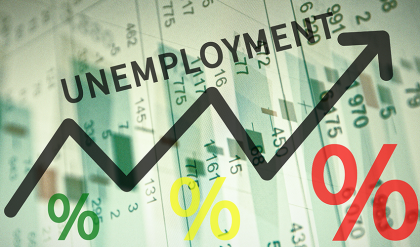First, President Trump’s apparent tantrum filled the headlines yesterday. But I think the more significant development was the latest sign of anxiety among congressional Republicans. “We’re getting pretty close” to a breaking point, Senator Pat Roberts of Kansas said. It remains unclear to me how this standoff can end well for Trump.
For more, Ross Douthat, Michelle Goldberg and I talk about the shutdown on the latest episode of “The Argument” podcast. We also debate why powerful women in politics cause so many people to panic.
Olivier Blanchard is one of the world’s most respected economists. A native of France and longtime M.I.T. professor, he’s known for his rigorous and careful research on macroeconomics.
This past weekend, as Blanchard approached the end of his tenure as the president of the American Economic Association, the field’s main professional organization, he gave an outgoing address at a conference in Atlanta. It had a clear message: The world has been too obsessed in recent years with the supposed costs and risks of government debt.
Other economists have already begun hailing the speech as an important corrective — “really, really, really important,” says Jason Furman — to the always-fashionable scaremongering about debt.
Blanchard’s case revolves around the fact that economic growth rates in modern times are usually higher than interest rates. This pattern means that governments can often repay their debts more easily than people expect, because economies produce more than enough bounty to cover interest payments. And debt can bring enormous benefits, by allowing governments to invest in education, transportation, scientific research or other programs that often don’t yield much of a profit for private companies — but can substantially lift economic growth.
“You can use it, if you use it wisely,” as Blanchard said after the talk, referring to debt.
The classic example of a government that repaid a large debt with relative ease is the American government after World War II, as my colleague Paul Krugman writes in a piece on Blanchard’s address. The federal government didn’t repay its wartime and Depression debts through higher taxes or spending cuts. It repaid them with the tax revenue created by economic growth. In recent years, growth rates have been lower than they were in the middle 20th century — but interest rates have been lower, too.
There are limits to the idea, of course. For one thing, a government should take out debt for productive reasons. President Trump’s make-the-rich-richer tax cut doesn’t count as a productive use of debt. And at a certain point, debt could reach a level that would indeed be damaging. The notion that debt doesn’t matter — which is gaining some currency on the left — is wrong. The long-term costs of Medicare, for example, continue to be a real problem in this country.
But the mistake that the United States and Europe have made in recent years has not been to issue too much debt. It has been to issue too little — and scrimp on investment in education, transportation and so on. I’m among those people who have worried a lot — too much at times, to be honest — about debt, and I find Blanchard’s case persuasive.
To cluck about the debt may sound sober-minded and responsible. But it often isn’t. Instead, it can be bad economic policy that hurts the country — including future generations.
For more, read Jared Bernstein’s write-up in The Washington Post. The academic paper that Blanchard released in conjunction with his talk, Bernstein writes, “injects some extremely important facts into discussions about fiscal policy that have long been characterized by assertions, biases and fearmongering.”
Welcome, Farhad
Farhad Manjoo has long been one of my favorite technology columnists, and I’m thrilled that he’s now an Opinion colleague. His debut columnhas just been published. “It’s 2019. Why haven’t you started meditating, already?” Farhad asks. “Why hasn’t everyone?”





